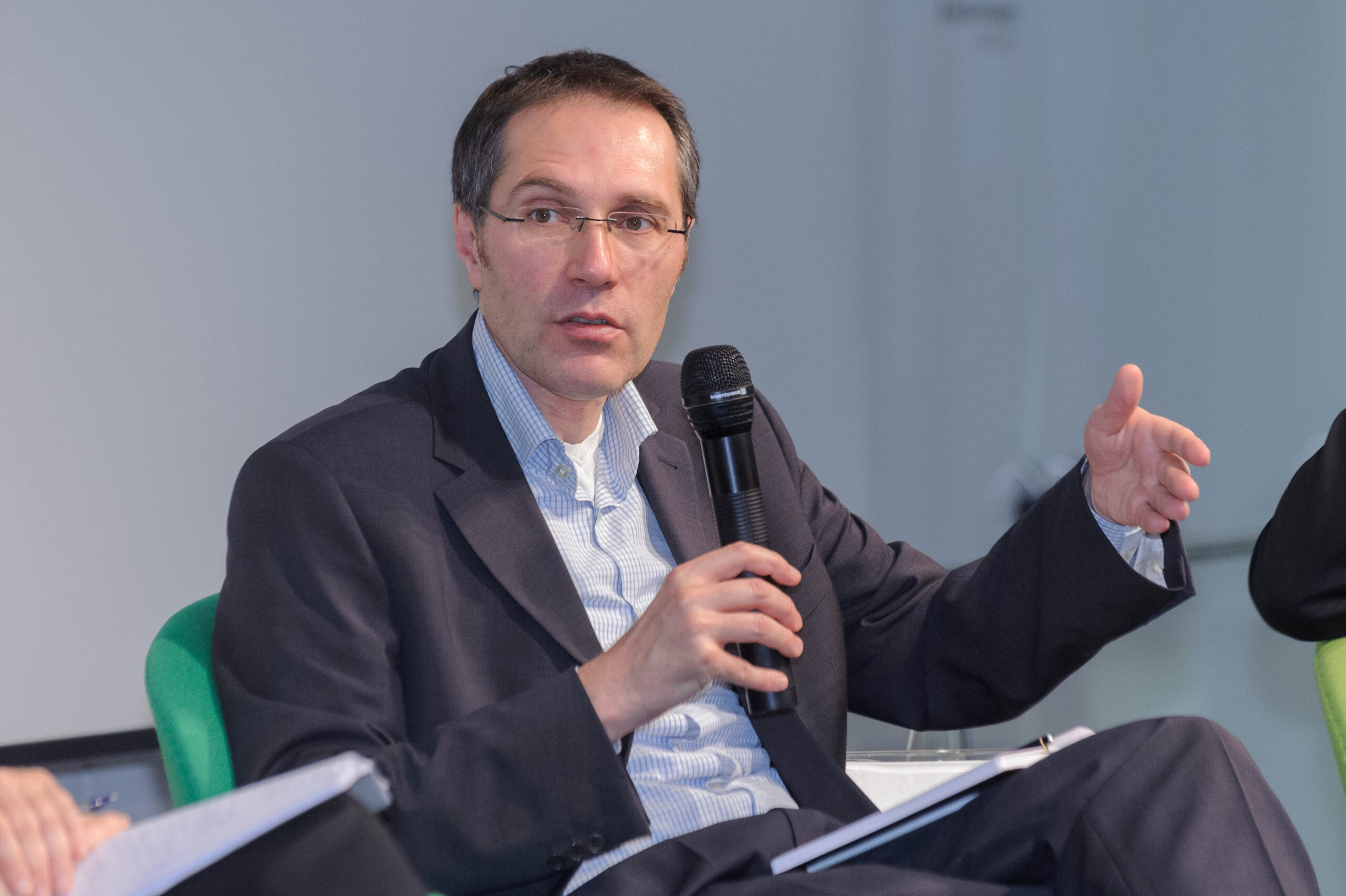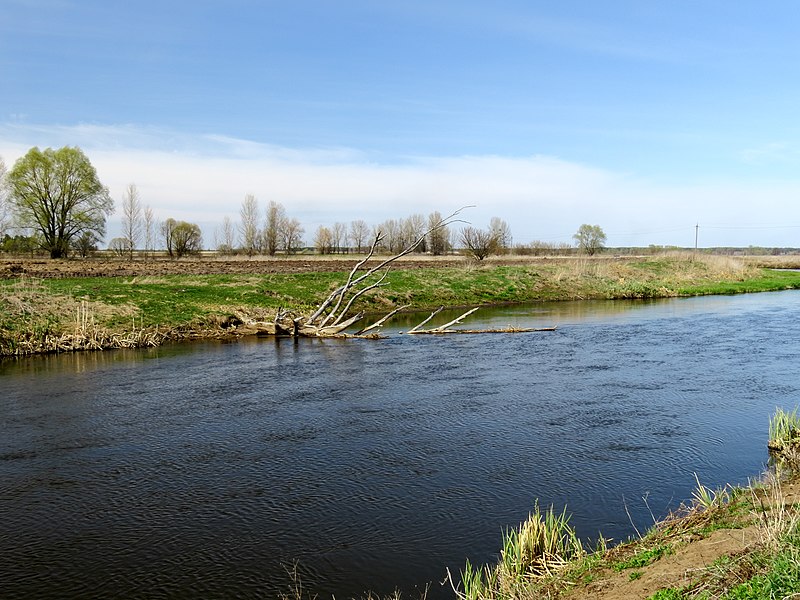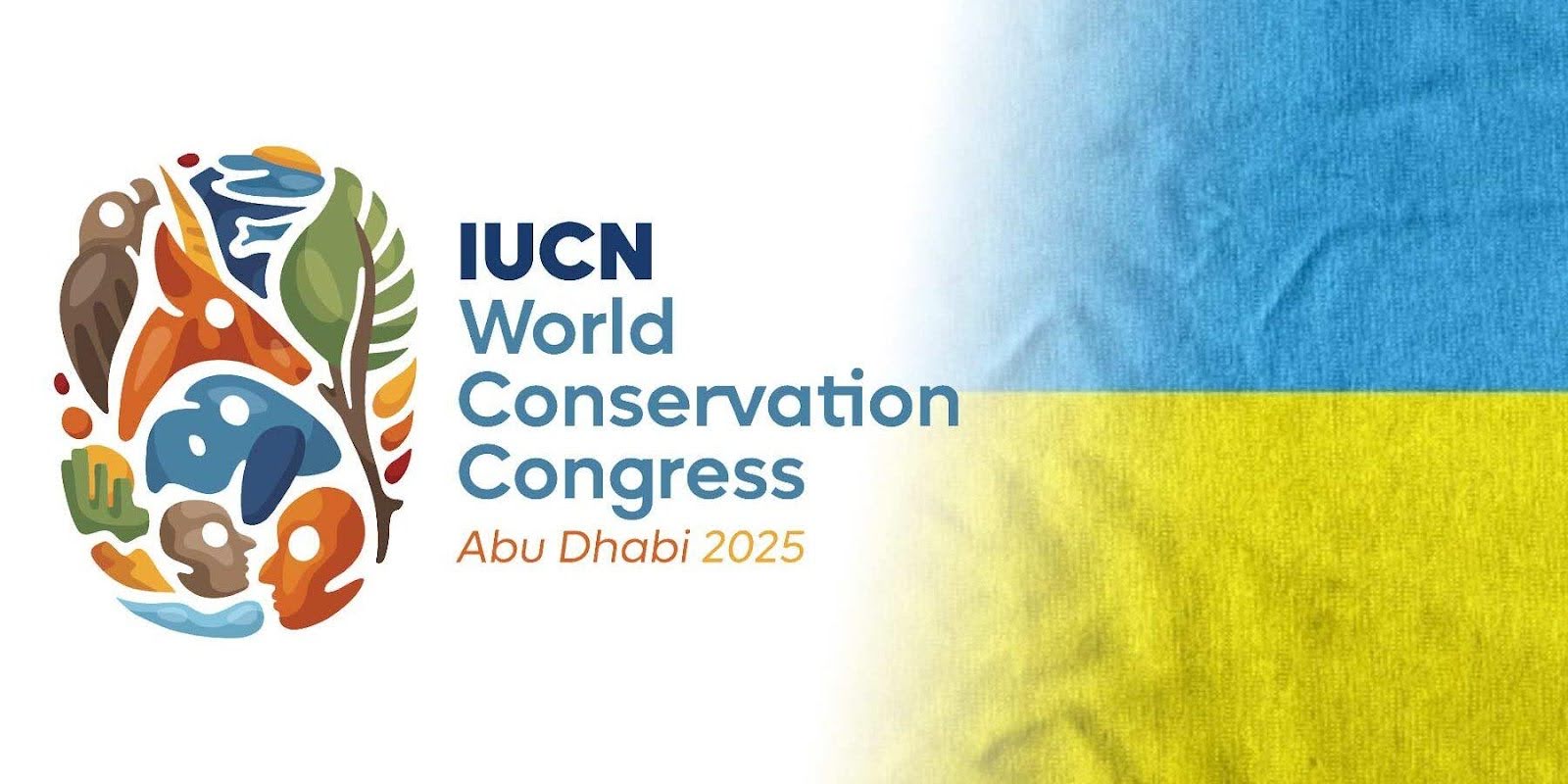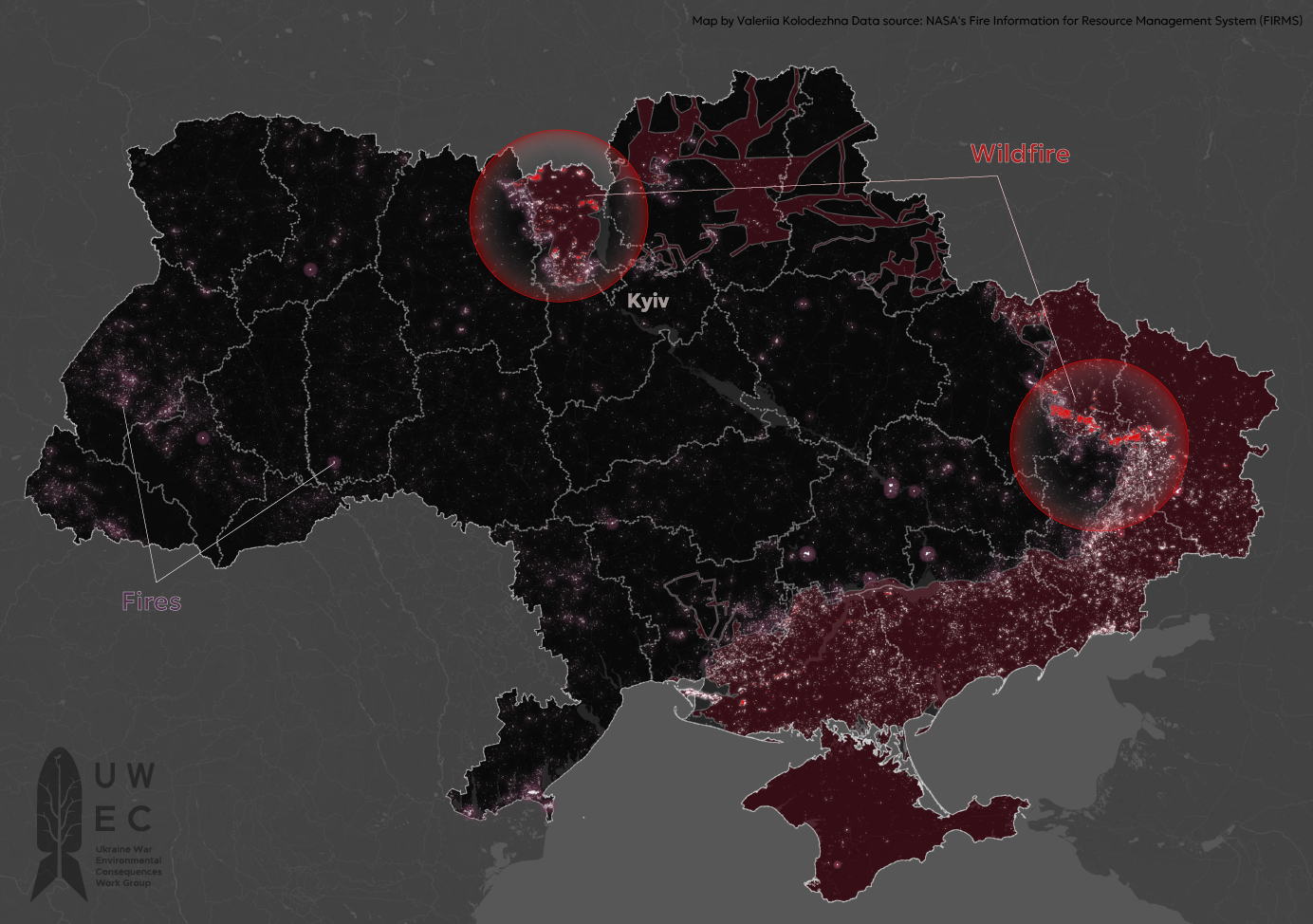UWEC Expert Angelina Davydova and her two colleagues Natalie Sauer and Boris Schneider co-host The Eurasian Climate Brief podcast. In the latest episode they spoke with Sascha Müller-Kraenner, the CEO of Deutsche Umwelthilfe (Environmental Action Germany), a leading environmental, nature conservation, and consumer advocacy organization. In 2020, his NGO filed a lawsuit with Germany’s Higher Administrative Court against the construction of Nord Stream 2 over its potential methane leaks, including as a result of acts of terrorism. Although Müller-Kraenner lost that legal battle, he has now won the argument.
Last week, a number of leaks were detected in the gas pipelines linking Russia to Europe, Nord Stream 1 and Nord Stream 2. In a joint letter to the UN Security Council, Denmark and Sweden declared that there had been at least two detonations with several hundreds of kilograms of explosives, causing major leaks into the Baltic Sea.
What we know is that we have three relatively large leaks, and that in addition to that, we seem to have one smaller leak. And right now methane is leaking out of all of those, which basically means that it goes through the sea and the pipelines are 70 to 80 meters below surface as bubbles, and then it ends up in the air and at the end in the atmosphere. And methane is a very potent greenhouse gas that contributes to the greenhouse effect. Can you estimate the climate impact?
Sascha Müller-Kraenner: So methane is a greenhouse gas that over the period of the next 20 year, equals 80 times the greenhouse effect of a molecule of CO2. What that means is that you have a volume that is coming out of the pipeline that equals half of the annual emissions of a country like Denmark, or when you translate it into CO2, it equals emissions that are higher than the emissions of one of the larger coal power plants that we have in Europe. So it’s a substantial amount.
That sounds very serious. Let’s look at the possible solutions to this problem. Is there any way we can fix those leaks, or at least diminish this very important or very intense impact that you just mentioned. For example, there has been talk of burning the gas. This is a procedure that is also known as flaring in order to reduce the methane concentration. Is this something governments may be willing to consider at this point?
Sascha Müller-Kraenner: I must say that at this point in time, most of the damage is already done, because most of the methane has already left the pipeline. So, what I have said from the beginning is that the best thing would be to open the pipeline on the German side. And well, let’s just consider for a moment that Gazprom would act as a responsible company also on the Russian side and basically let the gas out of the pipeline, pump it out of the pipeline, let it out of the pipeline, in the grid in storage facilities, because there it could be used as natural gas could be burned, which would still turn it into CO2, but not into much more dangerous methane. So now, this does not seem to happen. I’m not sure for which reasons, maybe legal reasons. The other option that, in principle, could work is burning flaring the methane. However, the large uncontrolled amounts that we have, I think the authorities made the decision that it’s too dangerous to flare such amounts, that this would present another incalculable risk for the marine environment or for sea transport. So that was not done. Last option that has been considered is whether those leaks could be repaired. But the fact is, those leaks are too large, so that even a temporary repair would not have worked. In the longer term, that would mean fixing the tubes themselves. And that can only be done when the pipelines are empty. And then we’re back to square one.
Has there been any communications between Gazprom and European governments?
Sascha Müller-Kraenner: Not that I know of, and that is one of the problems that we’re having now with both the pipelines. There’s almost no communication left. We do know that Siemens Energy, which is the company that has built turbines for both pipelines, is still communicating with Gazprom, that the companies that buy the gas from Gazprom, at least that bought the gas coming through Nord Stream 1, were obviously regularly communicating with the marketing side of Gazprom. But on a political level, there does not seem to be functioning communication. An additional problem is that the Nord Stream 2 company which owns the second of those two pipelines, is in an insolvency process; it’s almost bankrupt. So they only have a very small rump team still operating. So they are not really operational. They don’t have the experts anymore on board, just some lawyers are basically tying up business for the company. So that’s an additional problem.
Do you know how much natural gas is actually left in those pipelines, and related to that, how long the leaks might continue?
Sascha Müller-Kraenner: There is very little left, it seemed that most of it was already gone. And the Danish authorities say that the rest will be gone by the weekend (October 1-2). So probably by Sunday (October 2), give it a day or two, but so it will have basically needed a week for the pipeline to empty its contents into the Baltic Sea and from there to the atmosphere.
The blasts have naturally brought concerns over energy security at the forefront of the conversation. And there are several ways of responding to this. On the one hand, one can further ramp up defense of fossil fuel and nuclear infrastructure. This week, for example, Norway’s Prime Minister said its military will be more visible at oil and gas installations. And on the other, this could also be an incentive to accelerate the green transition and decentralize energy supplies further in the spirit of renewable energy. Which response do you think is more likely to prevail in Europe? What’s the tone of the conversation that’s being had at the moment?
Sascha Müller-Kraenner: Right now, the conversation in Europe is very much focused on the coming winter, on energy prices, and how we keep the economy going, and how we keep apartments warm. Therefore, we have to do the one without forgetting the other. Obviously, in the short term, we must make sure that similar accidents or sabotage acts, whatever it was, do not happen in other areas, because it would be quite a drama if the Norwegian gas pipes would be hit by similar acts of sabotage. That would really create major disruptions of the European economy.
On the other hand, we also must make the argument now that this is part of the risk that we have when we continue to have those large scale fossil infrastructures. Now, we, as an organization, actually litigated against the construction of the Nord Stream 2 pipeline. And part of our argument always was, there are security concerns. It’s not only climate security, but it’s also material security concerns. What do you do? We basically asked the licensing authorities: What do you do in case of an accident? What do you do in case of a terrorist act? And what’s the emergency plan? The response was, there will not be an accident, and it is extremely unlikely there will be terrorist acts, therefore, no emergency plan. And this is what we see today. Now, there was no plan for what to do in case of an accident. Basically Europe watches the pipelines empty themselves in the atmosphere without reaction. So what will happen next? That’s the huge question. Will this lead us to new security protocols for those kinds of projects? Will this lead to rethinking whether those projects make sense in the future or whether we strategically have to replace them with infrastructure that is more resilient, besides being more climate-friendly, which would be renewable infrastructure? And one question that I would dare to ask is what should happen with those rusty pipelines on the Baltic Sea, I don’t think they will be repaired in the short term. I don’t think they should be repaired. They will fill with seawater now, and they will be very difficult to repair. They will continue to erode. And I think they should be removed. They don’t belong in an ecosystem. And they also contain a lot of valuable raw material – a lot of expensive steel – so they should be taken out. And it should be put to better use.
How sympathetic are governments to “I told you so” voices such as yours, in the time being?
Sascha Müller-Kraenner: I see that the media are picking them up. And I think that that case has to be made. And no one likes to hear: “I told you so.” But in that case, we did. Well, we were fighting legally against the Nord Stream pipeline project, which has always been a very popular project in Germany. It has had the broad support of the political elites and of the economic elites. It was always an unpopular proposition to say “we don’t need that project” for climate purposes, plus additional arguments that are very valid. And I think we also have to analyze what went wrong in the German debate in the last decades and how Germany got itself into that dependency of Russian gas. That had a lot to do with deeply entrenched interests. Political leaders in Germany and German business heads had a specific German business model that relied on cheap Russian gas. And I think it makes a lot of sense to analyze what went wrong and to identify who made which strategic decision that led us into the situation we’re in now. And that might not be a popular exercise, but it’s a necessary one.
So the blasts were, as we’ve discussed earlier, a climate event, even though of smaller proportions than some may fear. Such acts threaten not only our energy security, but our climate security and the viability of our planet at large. Do you think this could accelerate the push for UN institutions to take climate security more seriously? For example, in recent years, European countries such as France, the UK and Belgium have attempted to bring climate threats onto the agenda of the UN Security Council, calling on the body to produce annual reports on climate security. And Russia has opposed these efforts. Do you think this might accelerate this movement?
Sascha Müller-Kraenner: Now for the last decades, we had an academic debate on the concept of climate security, and I’ve seen a lot of interest. And in the last few years there has been a strong emphasis on climate security, not only as an interesting academic idea, but as something of relevance to foreign policy-making.
Now the new German Foreign Minister Annalena Baerbock has made it her job to make sure that Germany has a national security strategy that includes climate security as one of its main premises. Now, I believe this is necessary. Climate security has to be one of the main premises on how we look at security and the strategic interests of Germany or of Europe. However, I believe that now the war of aggression of Russia against Ukraine has led to a more traditional view on security. Basically, we see security conversations that remind me of history books. This seems to be a security situation like we had around World War I or around World War II.
But I believe and I certainly hope that we can make sure that there’s progress in thinking that security is not only simply military security, but that the phenomenon of global change – and climate change being the most prominent – are part of how we have to think about security. So I hope that this idea will prevail and that we will continue to base our security approaches on more than just traditional military considerations.
Foto: Wikimedia Commons







